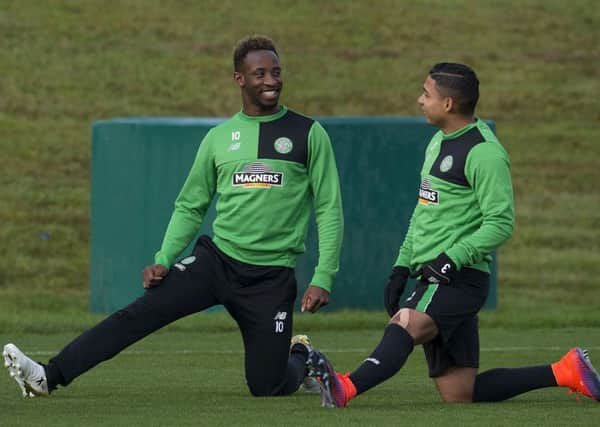Brendan Rodgers seeks Celtic legacy from European riches


What wasn’t going through the Celtic manager’s mind at that moment was that had the ball struck the back of the net, it would have earned his club an extra €1 mill ion.
As it was, Moussa Dembele’s penalty ensured the Scottish champions picked up a €500,000 performance bonus from Uefa for their 1-1 draw – the French striker effectively paying back the transfer fee the club paid for him last summer with one swipe of his right boot.
Advertisement
Hide AdAdvertisement
Hide AdThose are the eye-watering numbers Celtic benefit from on their return to the group stage of the Champions League. Should they fail to pick up another point in the competition this season, they will still rake in around £27m in Uefa prize money alone, before gate receipts and other supplementary income is factored into the equation.
Rodgers insists he hadn’t given the financial implications of the Champions League too much thought before it was put to him at a media conference yesterday.
But he does have a clear idea of what both the short and long term benefits of participation in Europe’s elite club tournament should be for Celtic. As well as enhancing his own spending power in future transfer windows, Rodgers hopes it will enable his tenure as manager to leave a lasting footprint on the way the club operates.
“There has to be a legacy to all of this,” he said. “It can’t just be a case of getting in here and not having something to show for it. So for us, it is about improvement on and off the field and always being sensible. In the financial climate in Scotland, where you don’t get it given to you, where every single penny for every single club has to be earned, I’m happy the club can get that Champions League money. I’m happy the players have the chance to earn it for the club.
“Hopefully, it allows you to build the club as you want to. The club have been brilliant in terms of everything we are trying to do here. Obviously, you have to be sensible with it. What’s important, first and foremost, is that we can improve the team on the field. That is always the core of the club and its success. Along with that, you want improvements off the field.”
Should Rodgers succeed in the ambition he revealed earlier this week to establish Celtic as last-16 regulars in the Champions League, then the consistent flow of income generated would allow higher wages to be offered to signing targets. But he also believes Celtic must remain resourceful in finding players of untapped potential, such as Dembele, and those whose well-rewarded careers at other clubs had stalled, such as former Manchester City winger Scott Sinclair.
“Hopefully the revenue allows you to do that (pay higher wages) but again it always has to be conditional,” added Rodgers, pictured right. “You can’t just be throwing it about, that’s the reality. If you are qualifying regularly and you are banking the money, then you look at it. But it is about having a sensible approach.
“Hopefully the club sees that I try to bring value in. Hopefully the squad’s value will have increased in the time we have been here and will further increase.
Advertisement
Hide AdAdvertisement
Hide Ad“We brought in Moussa – and where is he at now? He is a top young player and you wouldn’t like to put a figure on where he is at. You have other young players improving all the time and developing. You know that you need to get the right profile of player first and see where you go from there.
“For every Moussa Dembele there is, there are others who aren’t like that. Moussa was coveted by lots of teams in Europe but chose to come here to develop further and learn the game and hopefully play at Champions League level.
“Some players will be happy playing relegation football but earning more money. You can’t blame them because it’s a short career. It’s just the type. If it purely comes down to money the reality is the Premier League is the richest league in the world.
“It’s not necessarily just young players we are looking at. For me there is no age limit on it. If you bring in a 19-year-old and he develops like Moussa, then of course if he then does move on there is naturally a big re-sale value but also it is what can be done for the team now. Scott Sinclair, for example, has had a few years of unhappiness in England. He’s now happy, winning and playing for a big club here. He’s happy with his salary. Life is good for him. If someone comes in for him in a couple of years, he will certainly think twice about it because he’s had the downs and now he’s on the up again. He knows what the other side is like.”
Having said that, Rodgers is under no illusions about Celtic’s ability to prevent any of their best players being lured away by Premier League clubs.
“It’s still very difficult,” he admitted. “Sometimes it doesn’t even matter about the game time you are giving them here. That’s the reality of it. If someone is on 20 grand a week and someone comes in and offers him 100 grand a week, you can be the biggest club in the world, you can have a great manager, you can have great supporters, the restaurants are great in Glasgow, Loch Lomond is great, Gleneagles is great, but I tell you what – one hundred grand a week? See you later!”